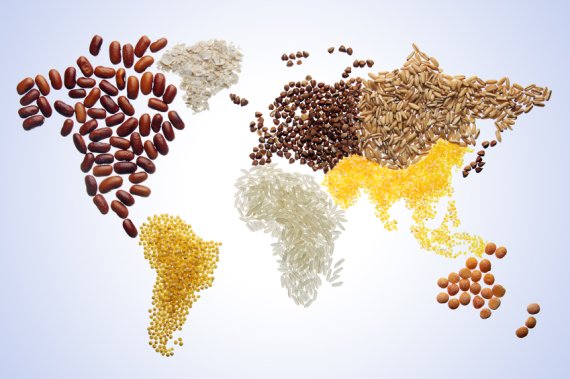Wageningen research backs the princess up. It has proven cost-effective to give goats and credit to the rural poor in Indonesia. The already paid-for goats bring in 30 percent of the income of these smallholders, but only when the beneficiary already has some knowledge and experience of keeping livestock. Knowledge about livestock is not the only prerequisite, however. It is also crucial for the credit to raise the smallholder’s labour productivity. This emerged from World Bank research in China, in which development economist Lei Pan took part. She evaluated a credit scheme in the ‘backward’ region of western China, which is full of smallholders and far from the industrial hubs. Small-scale farmers who raised their labour productivity on the farm succeeded in breaking out of poverty, the research revealed. Temporary migration to the city to supplement their incomes only offered marginal relief. So now we know what we should do: provide credit for machines, improved seeds and artificial fertilizer so that smallholders can raise production and earn more per hour. But that is not as easy as it may sound, says Pan’s colleague Kees Burger. The smallholders need to be close to a market in order to sell their produce, otherwise the investments do not pay off. For a self-sufficient smallholder, artificial fertilizer is an investment that brings them more food but also debt. There are all sorts of small farmers in the world, says Burger, but one thing most of them have in common is that their smallholding is just one of several activities: they also earn money from odd jobs, part-time jobs or trade. So they have to divide their time between farming and other means of scraping a living together. In this situation it is not certain that investing in the farm is profitable. More like allotment holders than real farmers, many of these smallholders, particularly those who lack green fingers, would never make it as commercial farmers, says the economist. Having once had an allotment, I know exactly what Burger means. First you have to dig in the fertilizer, then sow, and then use your free time for the endless weeding. A dry spring does for some of your seed and your strawberry plants shrivel up. Then your tomatoes fall victim to Phytophthora, while the Colorado beetles devour your potatoes. Meanwhile, wild animals eat their fill… Just when I was nearly really to harvest what little was left, I had to move temporarily to a campsite. When I got back everything was overrun.
So my labour productivity was spectacularly low and I certainly did not work my way up to small farmer status. Fortunately my experienced allotment neighbours did better, so there is still hope for the world food supply. But before you hand out the microcredit you do need to sort out the hobby gardeners from the potential farmers. Links: The goat-based programme: http://www.sciencedirect.com/science/article/pii/S0921448812003392 Lei Pan: http://onlinelibrary.wiley.com/doi/10.1111/j.1574-0862.2012.00630.x/abstract Burger: http://www.narcis.nl/publication/RecordID/oai:library.wur.nl:wurpubs%2F425818/Language/en
Wageningen research backs her up. It has proven cost-effective to give goats and credit to the rural poor in Indonesia. The already paid-for goats bring in 30 percent of the income of these smallholders, but only when the beneficiary already has some knowledge and experience of keeping livestock. Knowledge about livestock is not the only prerequisite, however. It is also crucial for the credit to raise the smallholder’s labour productivity. This emerged from World Bank research in China, in which development economist Lei Pan took part. She evaluated a credit scheme in the ‘backward’ region of western China, which is full of smallholders and far from the industrial hubs. Small-scale farmers who raised their labour productivity on the farm succeeded in breaking out of poverty, the research revealed. Temporary migration to the city to supplement their incomes only offered marginal relief. So now we know what we should do: provide credit for machines, improved seeds and artificial fertilizer so that smallholders can raise production and earn more per hour. But that is not as easy as it may sound, says Pan’s colleague Kees Burger. The smallholders need to be close to a market in order to sell their produce, otherwise the investments do not pay off. For a self-sufficient smallholder, artificial fertilizer is an investment that brings them more food but also debt. There are all sorts of small farmers in the world, says Burger, but one thing most of them have in common is that their smallholding is just one of several activities: they also earn money from odd jobs, part-time jobs or trade. So they have to divide their time between farming and other means of scraping a living together. In this situation it is not certain that investing in the farm is profitable. More like allotment holders than real farmers, many of these smallholders, particularly those who lack green fingers, would never make it as commercial farmers, says the economist. Having once had an allotment, I know exactly what Burger means. First you have to dig in the fertilizer, then sow, and then use your free time for the endless weeding. A dry spring does for some of your seed and your strawberry plants shrivel up. Then your tomatoes fall victim to Phytophthora, while the Colorado beetles devour your potatoes. Meanwhile, wild animals eat their fill… Just when I was nearly really to harvest what little was left, I had to move temporarily to a campsite. When I got back everything was overrun.
So my labour productivity was spectacularly low and I certainly did not work my way up to small farmer status. Fortunately my experienced allotment neighbours did better, so there is still hope for the world food supply. But before you hand out the microcredit you do need to sort out the hobby gardeners from the potential farmers. Links: A goat programme: http://www.sciencedirect.com/science/article/pii/S0921448812003392 Lei Pan: http://onlinelibrary.wiley.com/doi/10.1111/j.1574-0862.2012.00630.x/abstract Burger: http://www.narcis.nl/publication/RecordID/oai:library.wur.nl:wurpubs%2F425818/Language/en

